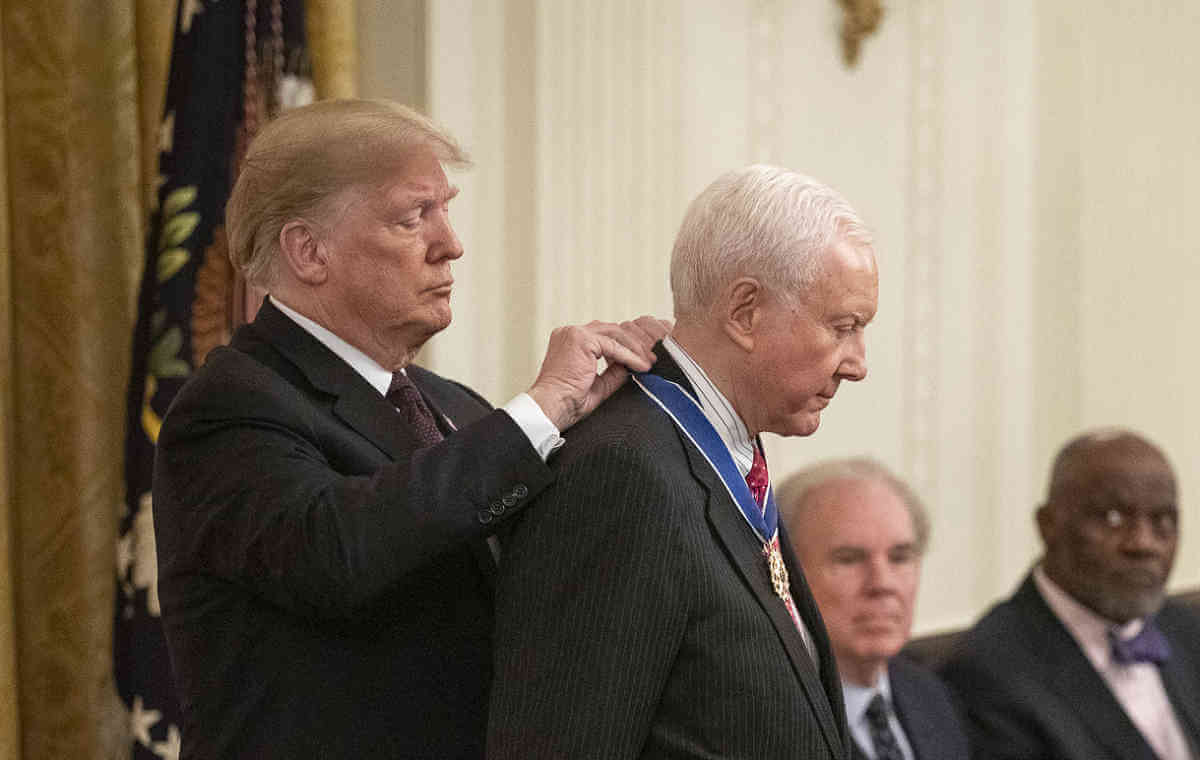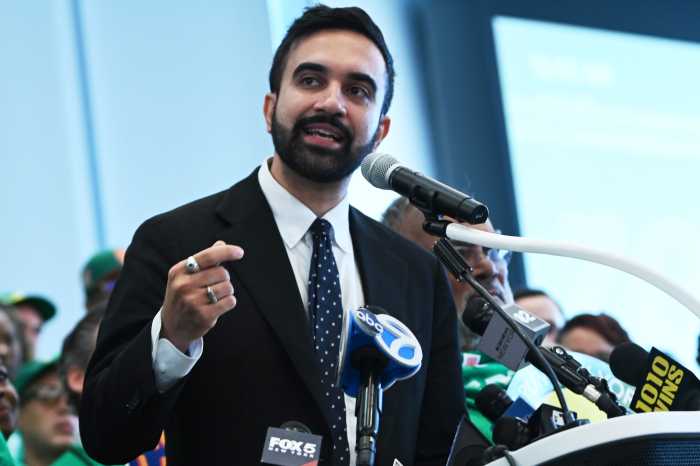While retiring US Senator Orrin Hatch endorsed pluralism in his farewell speech and said it could lead to compromises between the LGBTQ community and religious conservatives who oppose legislative advances for that community, he failed to note that the compromises he championed in his 42-year career in the US Senate were controversial in the LGBTQ community.
“Nowhere is the pluralist approach more needed than in the fraught relationship between religious liberty and LGBTQ rights,” the 84-year-old Republican said on the Senate floor on December 12. “It shows us that protecting religious liberty and preserving the rights of LGBTQ individuals are not mutually exclusive. I believe we can find substantial common ground on these issues that will enable us to both safeguard the ability of religious individuals to live their faith and protect LGBTQ individuals from invidious discrimination.”
For much of his career, Hatch was an avowed opponent of legislation sought by the LGBTQ community, but in recent years his stance on such legislation and his general opposition to the community has softened.
Hatch supported the Employment Non-Discrimination Act (ENDA), which would have barred employment discrimination based on sexual orientation and gender identity. ENDA passed the Senate with yes votes from 54 Democrats and 10 Republicans, including Hatch, in 2013. The bill never got a vote in the House, which was controlled by Republicans then.
Some LGBTQ groups opposed ENDA and in the months following the vote, growing numbers of LGBTQ groups withdrew their support for ENDA because its religious exemption, which Hatch championed, was sweeping. Queer Nation, which I belonged to at the time, launched a months-long campaign to pressure more groups to defect from ENDA and back comprehensive federal legislation that would add sexual orientation and gender identity to the Civil Rights Act of 1964. Such legislation, called the Equality Act, was introduced in the Senate and House in 2015.
While Hatch did not mention ENDA by name, he did discuss what is called the Utah Compromise, which Hatch said was “a bipartisan anti-discrimination law that both strengthened religious freedoms and offered special protections to the LGBTQ community.”
That 2015 state law added sexual orientation and gender identity to Utah’s existing anti-discrimination law. While hailed as a breakthrough in the mainstream press, the amended law had a religious exemption that placed any entity owned by a religious institution outside of the law’s purview. It covered housing and employment, but did not address discrimination in public accommodations. At the time, Chad Griffin, now the outgoing president of the Human Rights Campaign (HRC), the nation’s largest LGBTQ lobby, said the Utah law “should serve as a model for other faith traditions.”
Queer Nation attacked the Utah Compromise in a March 2015 press release charging that Robin Fretwell Wilson, a conservative law professor who routinely presents herself as an LGBTQ ally and expert on legal matters affecting the LGBTQ community, had authored the legislation and that HRC had partnered with her.
HRC, Equality Utah, and other LGBTQ groups that were involved in passing the legislation denied that Wilson wrote the law and said they had not engaged with her during negotiations. But they were also quick to assert that what occurred in Utah was not a model for other states.
Utah legislators had a different view of Wilson’s role. At the March 5 Senate Business and Labor Standing Committee hearing, Senator Todd Weiler, a Republican, told Wilson, “I hope your name is known in annals of Utah history for bringing all of the stakeholders together. I can’t overemphasize how important your involvement has been.” (See Gay City News coverage of the 2015 debate about the Utah bill here.)
Hatch’s speech was greeted with some salutes on social media, but mostly charges that he should have exercised “pluralism” during his time in the Senate. A number of commenters noted his recent “I don’t care” response when CNN asked him about Michael Cohen, Donald Trump’s former personal lawyer, implicating the president in a crime to violate campaign finance laws. That comment was seen as proving the senator’s hypocrisy. Hatch later walked back that comment.
Mitt Romney, who, like Hatch, is a Mormon, will take Hatch’s seat in the 116th Congress. During his time as governor of Massachusetts, Romney was known for his opposition to the LGBTQ community’s interests, including marriage, though he was less strident than some Republicans.




































